- 1. What to do during the traffic stop.
- Full Penalties for Paying a First-Time Speeding Ticket in New York
- Why Do Points Matter in New York?
- This is My First NY Speeding Ticket But I’m From Another State
- Why Not Just Pay the Ticket and Be Done With It?
- What Happens if I Forget to Pay?
- Frequently Asked Questions
- Who Should I Contact for Help with My First Speeding Ticket?
It’s rare for anyone to go their entire life without getting a speeding ticket. Still, that first speeding ticket can be a scary experience. Those who have taken driver’s ed more recently may be aware of the possible fine and/or points. More experienced drivers pulled over for the first time could be less aware of all the possible penalties.
The following outlines what a driver should do when he/she gets his/her first speeding ticket in NY.
1. What to do during the traffic stop.
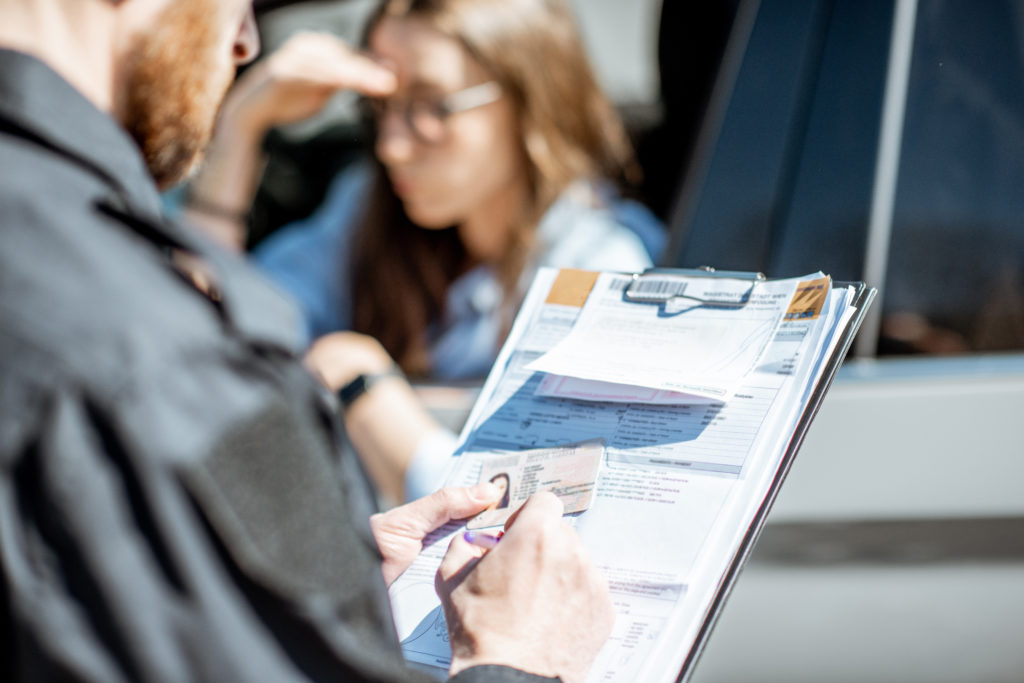
Being pulled over for the first time can be scary, but drivers would be well advised to relax and stay calm. Once a driver has been pulled over for speeding, the officer will typically request his/her license and vehicle registration.
He/she may ask if the driver is aware of the reason for the traffic stop. It is imperative that a driver never admits to speeding. This admission can and likely will be used against him/her in court. However, that does not mean the driver should be argumentative either. Instead, simply be polite and cooperative without acknowledging any wrongdoing.
2. What to do immediately after the traffic stop.
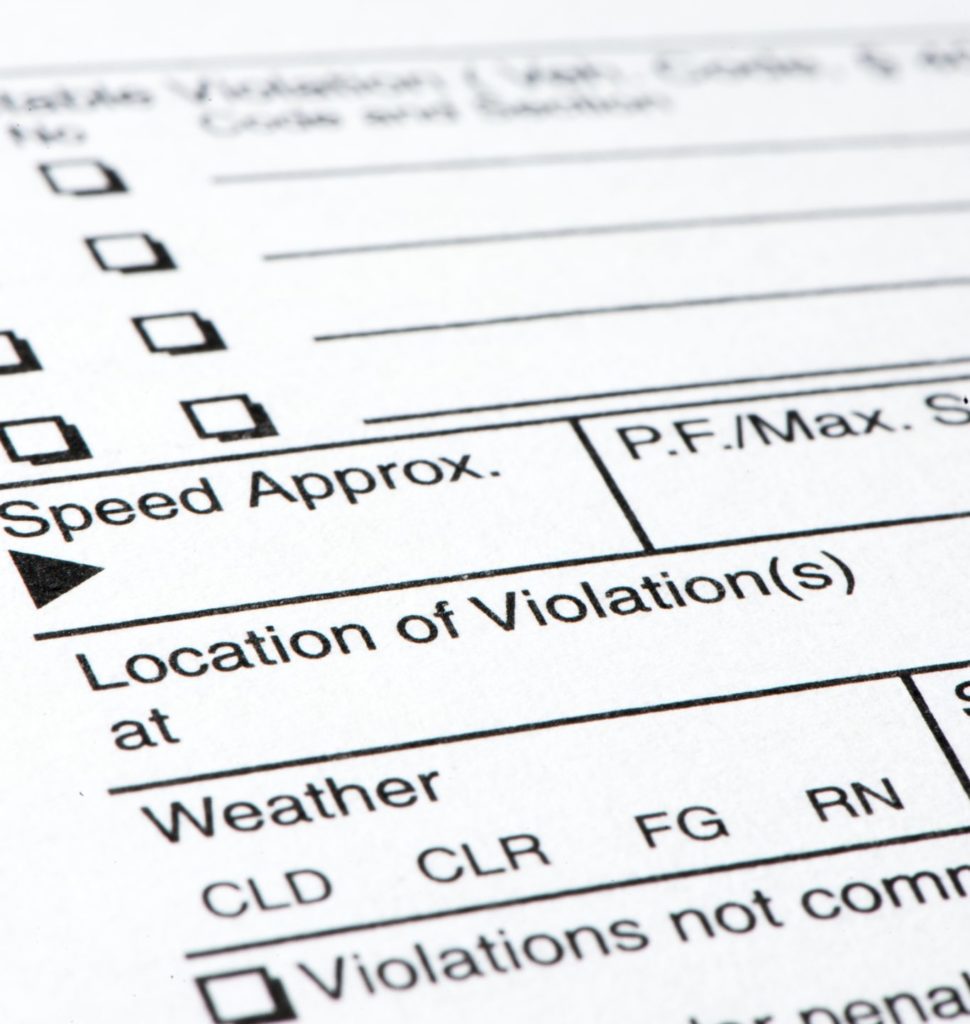
As soon as is reasonably possible after the traffic stop, the driver should review the information on the ticket. A New York State speeding ticket contains a lot of information about the driver, the vehicle, the details of the stop, the charge, the court where it can be challenged, and how to enter a plea (guilty or not guilty).
All of this information is important. In particular, the driver must take note of the date by which one must either pay or challenge the ticket. Failure to respond to a speeding ticket on time carries its own penalties (see below).
Likewise, it is important for the driver to write down as much information about the traffic stop as possible. Details such as the lighting in the area, the amount of foliage around, how visible the speed limit sign was, the level of traffic (light, moderate, or heavy), etc.
3. Contact an attorney to help you decide whether or not to pay the ticket.
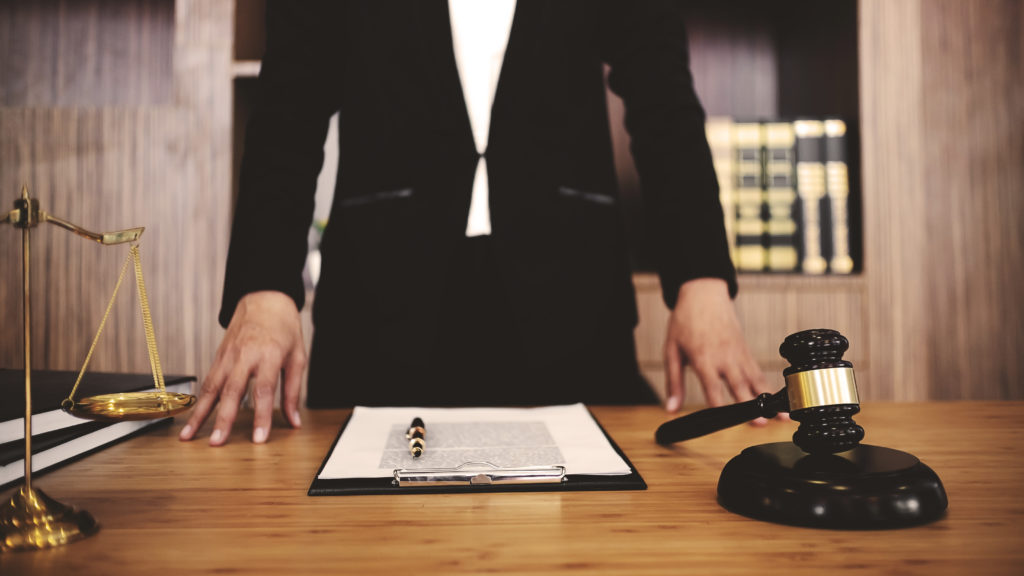
The one mistake that most drivers make when getting their first speeding ticket is paying the ticket. The assumption is often that, because this is the first offense, it isn’t a big deal—that it won’t affect one’s auto insurance much, that the points don’t matter, and that the ticket will drop off the driving record after a few years of good driving.
This would be a huge mistake! Depending on one’s income level, profession, and even the ZIP code one lives in, a first-time speeding ticket can raise insurance rates by nearly 20%. The faster one was alleged to be going, the greater the impact.
No driver should ever pay a first-time speeding ticket! Instead, he/she should consult with an attorney to determine the best way to beat or reduce the charge. Those who are uncertain should contact the attorneys at Rosenblum Law offers at 888-434-0406.
The best person to help decide which course of action to take is an experienced NY traffic violations attorney. While there is plenty of advice on the Internet on how to beat a speeding ticket on one’s own, a driver’s chances of beating a speeding ticket are much greater with the help of an experienced attorney. However, an attorney will know the process and know what to say, how to say it, and can realize the best path toward mitigating or eliminating the penalties.
When contacting a traffic ticket attorney, make sure to speak to an actual attorney on the phone before agreeing to hire him/her. While a ticket-fighting app may seem like an easy answer, there are many unexpected downsides to this approach that drivers should consider first.
4. Challenging a first speeding ticket: The pretrial conference.
Most traffic courts in New York State (except NYC), require drivers who wish to fight their speeding ticket to attend a pretrial conference before taking the matter to court. The pre-trial conference is a chance to negotiate the charges and potentially get the speeding ticket reduced.
Ideally, a driver will want the ticket reduced to a no-point offense such as a parking ticket. For more serious tickets (driving 21+ mph over the limit) getting the charge reduced to a non-speeding or lesser speeding offense may be the goal.
An attorney hired to handle the pretrial conference offers several advantages. Firstly, an attorney is a threat to the prosecutor’s conviction record, so he/she is more inclined to negotiate a conviction for a lesser charge than risk going to trial and losing altogether. Secondly, experienced attorneys have a relationship with many prosecutors throughout the state and can often leverage that relationship to get the best possible deal for the client.
Note that in New York City, there is no pre-trial conference and drivers are not allowed to negotiate tickets—every not-guilty plea must go to trial.
5. Challenging a first speeding ticket at trial.

If a driver is unable to get a good deal at the pre-trial conference or if the prosecutor is simply unwilling to negotiate, then one should consider taking the ticket to trial. At the trial, it is the job of the driver to prevent the prosecutor from proving that the alleged offense took place, i.e. that the driver was driving faster than the posted speed limit.
This may require some or all of the following:
- Asking intelligent, pointed questions of the officer that call into question his judgment or observations (cross-examination).
- Responding to questions by the prosecutor, officer, and/or judge.
- Providing evidence to support any claims made in court.
- Making legal arguments and motions
Read More: 10 Things to Know Before Going to Traffic Court
Most drivers would have a hard time beating a speeding ticket at trial. However, those who are in traffic court for the first time may be (understandably) nervous or uncertain of how to act, where to go, what to say, etc.
For these reasons and more, it is always best to hire an attorney who can walk him/her through the process and handle all the questions and answers on the driver’s behalf. In many cases, it may not even be necessary to show up to court in person.
6. Paying your speeding ticket fine.
Unless the ticket is dismissed, pleading guilty to a speeding ticket or a reduced offense will entail the payment of a fine. Deadlines and methods of payment vary from court to court (some allow credit card payment, others do not for instance). In addition, if those who accumulate 6 points of more from tickets within 18 months will also have to pay the DMV a Driver Responsibility Assessment (DRA).
Endnote: The only thing worse than a traffic ticket is getting one’s license suspended for failure to respond in a timely fashion, failure to appear in court on a scheduled court date, or failure to pay a fine or DRA by the fine payment deadline. Driving while suspended is a crime and could lead to an arrest, jail time, and/or a criminal record. Hiring an attorney can help avoid these kinds of mishaps.
Full Penalties for Paying a First-Time Speeding Ticket in New York
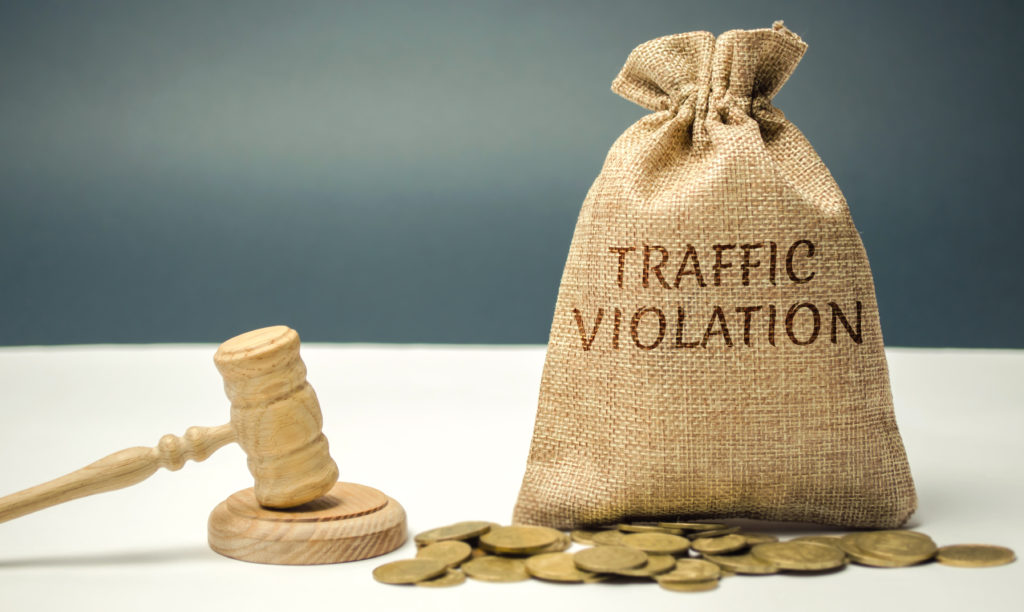
Points: The number of points assessed for a first-time speeding ticket depends on the alleged speed:
- 1 to 10 mph over the limit is worth 3 points
- 11 to 20 mph over the limit is worth 4 points
- 21 to 30 mph over the limit is worth 6 points
- 31 to 40 mph over the limit is worth 8 points
- 41+ mph over the limit is worth 11 points.
Fines: A first conviction for a NY speeding ticket can cost between $45 and $600. Specifically, speeding less than 10 miles over the limit can cost between $45 and $150. Speeding between 11 and 30 miles over the limit can cost between $90 to $300. Speeding 31+ mph over the limit can cost between $180 and $600.
NOTE: Do not expect the fine to be lower just because a driver has an otherwise clean record! A judge will set the fine based on a variety of factors, including how seriously the driver takes the ticket matter and how he/she behaves in court.
Surcharge: First-time drivers often do not realize that a mandatory state surcharge of $88 (if ticketed in a city) or $93 (in a town/village) is added to each ticket. This raises the final cost considerably.
Driver Responsibility Assessment (DRA) fee: This is another hidden fee that often surprises drivers getting their first speeding ticket. When a driver reaches 6 or more points in an 18-month period he/she must pay an additional fine known as the Driver Responsibility Assessment (DRA) fee. The DRA costs $300 plus an additional $75 for each point after the six. Since a single speeding ticket can cost 6 or more points, many first-time drivers find themselves paying a DRA on top of the fine and surcharge.
| First-Time Speeding Violation | Total Fine, Surcharge & DRA | Points |
| Speeding 1-10 MPH over limit | $133 – $238 | 3 points |
| Speeding 11- 20 MPH over limit | $178 – $388 | 4 points |
| Speeding 21- 30 MPH over limit | $478 – $988 | 6 points |
| Speeding 31-40 MPH over limit | $718 – $1,138 | 8 points |
| Speeding 41+ MPH over limit | $943 – $1,363 | 11 points* |
| *License suspended after 11 points |
Why Do Points Matter in New York?
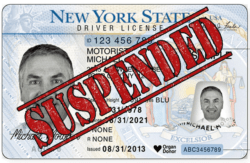
New York assigns a point value to the vast majority of traffic tickets. These points will count against the driver for 18 months from the date of the violation. There are two reasons why drivers will want to keep points off their license in New York State:
- DRA. As noted above, a driver who is convicted of six or more points worth of traffic tickets can be charged an additional fee called the Driver Responsibility Assessment. This adds hundreds of dollars to the total cost of a speeding ticket. Remember: Even a single, first-time speeding ticket can be worth 6 or more points!
- License suspension. Drivers who reach 11 points on their license can have it suspended by the DMV. Driving on a suspended license in NY is a crime and can result in jail time.
This is My First NY Speeding Ticket But I’m From Another State
Whether this is the first-ever traffic ticket or simply the first one ever received in New York, there are several very important things that an out-of-state driver should know about NY speeding tickets:
- Your home state could find out. Thanks to a little something called the Driver’s License Compact, many states (including NY) agree to share information about drivers who are convicted of traffic violations. This means an out-of-state driver’s home state very likely will find out about a NY speeding ticket. How each state handles out-of-state offenses depends on the local licensing authority; see our out-of-state driver pages for specific details.
- A NY speeding ticket cannot be ignored. A driver who refuses to pay a NY speeding ticket can have his/her right to drive in NY suspended. This suspension will likely be communicated to the home state, which may choose to reciprocate the suspension.
- The ticket must be paid to NY. The state where the offense occurs sets the fine, so an out-of-state driver must pay the NY fine for speeding, and not the equivalent fine from his/her home state.
- NY will create a driving record for out-of-state drivers. An out-of-state driver who pays a speeding ticket in NY will have a driving record in NY that will include the speeding offense.
- NY points still count. Even if a driver’s home state does not use points, NY will still count the points. A driver who is convicted of 6 or more points worth of traffic tickets will be charged a DRA (see above). After 11 or more points, the right to drive in NY can be suspended (see below).
- NY can take away your right to drive here. The New York State DMV cannot suspend or revoke an out-of-state license, but it can suspend or revoke the right to drive in New York regardless of the state in which one was licensed to drive.
A NY speeding ticket can impact out-of-state auto insurance. Many states will keep a record of out-of-state convictions, which means a NY speeding ticket can cause a rate increase to go up even if the driver is licensed elsewhere.
Why Not Just Pay the Ticket and Be Done With It?
Many drivers who get their first speeding ticket are tempted to just pay it so they do not have to think about it anymore. However, paying a speeding ticket does not “make it go away.” The points will go on one’s license and the conviction (paying a ticket is the same as pleading guilty or getting convicted) will go on one’s driving record.
This almost assuredly will raise insurance costs, costing hundreds of dollars more in the long run. For those who drive for a living, or for whom driving is a substantial part of their job responsibilities (e.g. sales), even a single speeding ticket can affect job security.
In addition, while this may be the first speeding ticket one has ever received, there is no guarantee that it will be the last. The more tickets one gets in a three-year period, the more it will impact your rates.
Too many speeding tickets in an 18-month period can result in a suspension of one’s license. The same can happen if one gets 11 points or more on his/her license over the course of 18 months.
For all these reasons, it is urgent that every driver fight their first speeding ticket.
What Happens if I Forget to Pay?
A driver who misses the deadline to pay a speeding ticket can have his/her license suspended. Getting the license reinstated will require paying a fee ($70), on top of the potential fine for the ticket.
Not paying the ticket also looks bad on the driver and makes it harder to negotiate with prosecutors to reduce the charges or beat the ticket in court, even for a first offense. Read more about failing to respond to a NY traffic ticket.
Frequently Asked Questions
Yes, a first speeding ticket can impact car insurance rates. The exact increase will depend on many factors, including driving history, age, the ZIP code one lives in, and more.
Getting a speeding ticket dropped is possible, depending on the circumstances. In many cases, it means proving that there was no probable cause for the traffic stop. This is not something the average person can do alone and may require the help of a traffic ticket attorney.
The only way to avoid points on a speeding ticket is to negotiate (plea bargain) with prosecutors to reduce the charge to a no-point offense. This requires excellent negotiation skills and substantial knowledge of the law.
Police can use sophisticated radar technology to tell which cars are speeding and which ones aren’t. However, police are allowed to estimate visually a person’s speed and conduct a traffic stop based on that.
Who Should I Contact for Help with My First Speeding Ticket?
If you, your child or another loved one has been caught speeding for the first time, it is advisable that you consult an attorney to help you avoid the costs associated with a ticket. The lawyers at Rosenblum Law are skilled New York traffic ticket attorneys who are experienced in handling tickets for speeding as well as other driving-related offenses. Call 888-434-0406 or email Rosenblum Law today for a free consultation about your case.